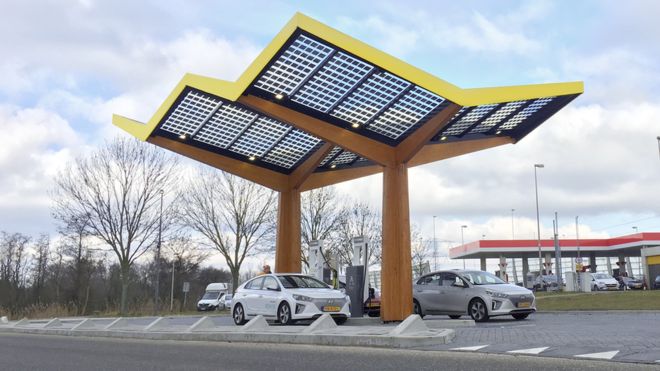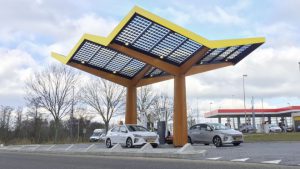Ten things to know about electric vehicles — and how you can make the future electric.
1. Electric vehicles now include cars, transit buses, trucks of all sizes, and even big-rig tractor trailers that are at least partially powered by electricity.
Electric vehicles fall into three main categories:
- Battery electric vehicles are powered by electricity stored in a battery pack.
- Plug-in hybrids combine a gasoline or diesel engine with an electric motor and large rechargeable battery.
- Fuel cell vehicles split electrons from hydrogen molecules to produce electricity to run the motor.
It’s more than just passenger cars now — from New York to Mississippi, you may find yourself on a quiet, zipping electric transit bus. The first electric fire truck in the nation will be welcomed by Angelenos in 2021 — and in the coming years, electric sanitation trucks will be quietly gliding through neighborhoods to pick up garbage and recycling, and more electric trucks will be delivering packages from warehouses to homes, air pollution-free.
2. Electric vehicles are saving the climate — and our lives. Here’s how.
The largest source of climate pollution in the United States? Transportation. To solve the climate crisis, we need to make the vehicles on our roads as clean as possible. We have only a decade left to change the way we use energy to avoid the worst impacts of climate change.
Emissions from cars and trucks are not only bad for our planet, they’re bad for our health. Air pollutants from gasoline- and diesel-powered vehicles cause asthma, bronchitis, cancer, and premature death.
The long-term health impacts of localized air pollution last a lifetime, with the effects borne out in asthma attacks, lung damage, and heart conditions.
As the COVID-19 pandemic — a respiratory disease — continues to spread, a study by Harvard University found “a striking association between long-term exposure to harmful fine particulate matter and COVID-19 mortality in the United States,” explains Rashmi Joglekar, a staff scientist at Earthjustice’s Toxic Exposure & Health Program. One of the primary causes of fine particulate matter pollution (PM2.5) is combustion from gasoline and diesel car engines.
An earlier study by Duke University underscored the health costs: each gallon of gasoline purchased at the gas station carries with it up to $3.80 in health and environmental costs. The diesel in big rigs and farm equipment is worse, with an additional $4.80 in social costs to our health and climate per gallon.
Read more: Earth Justice





